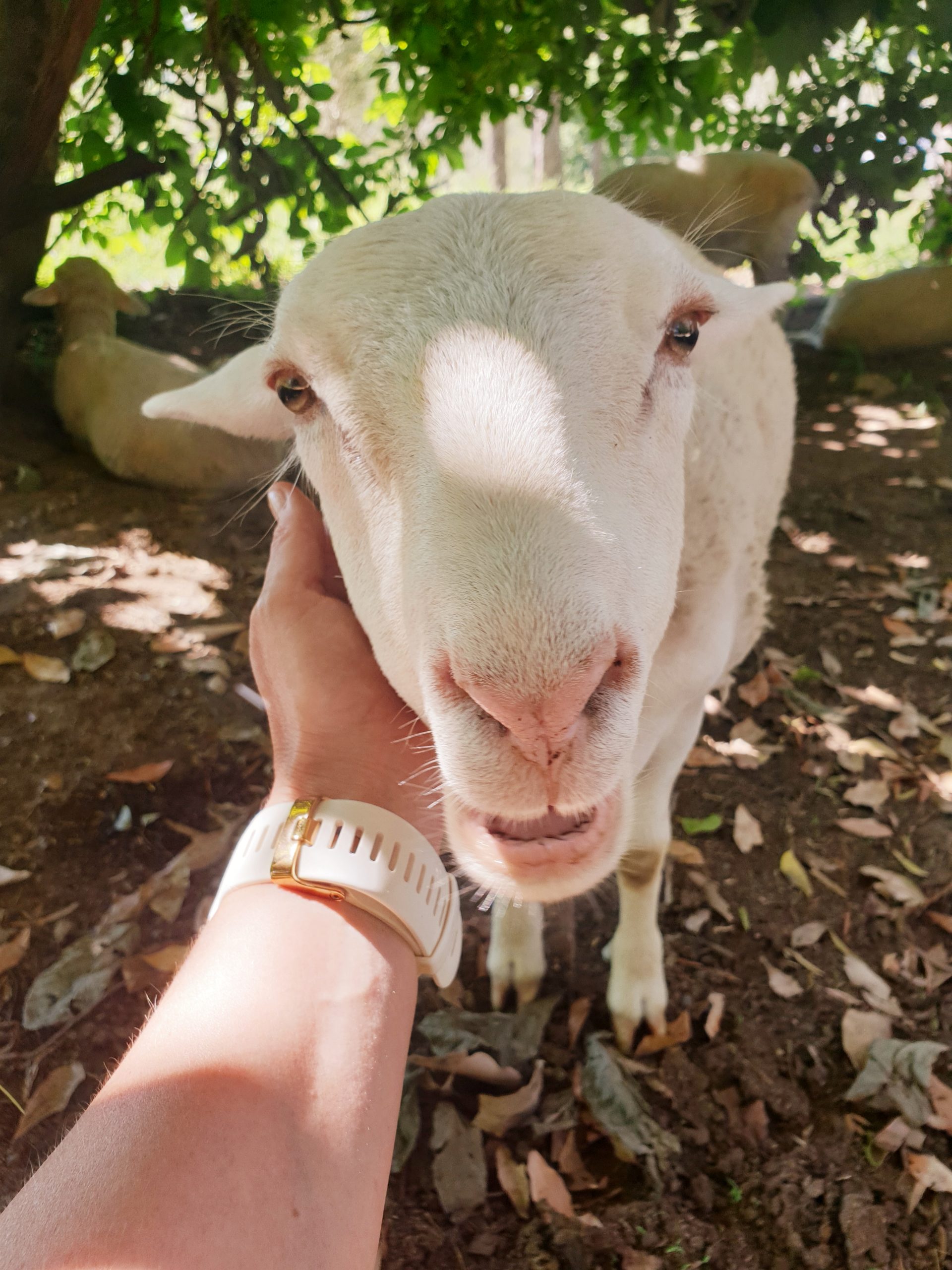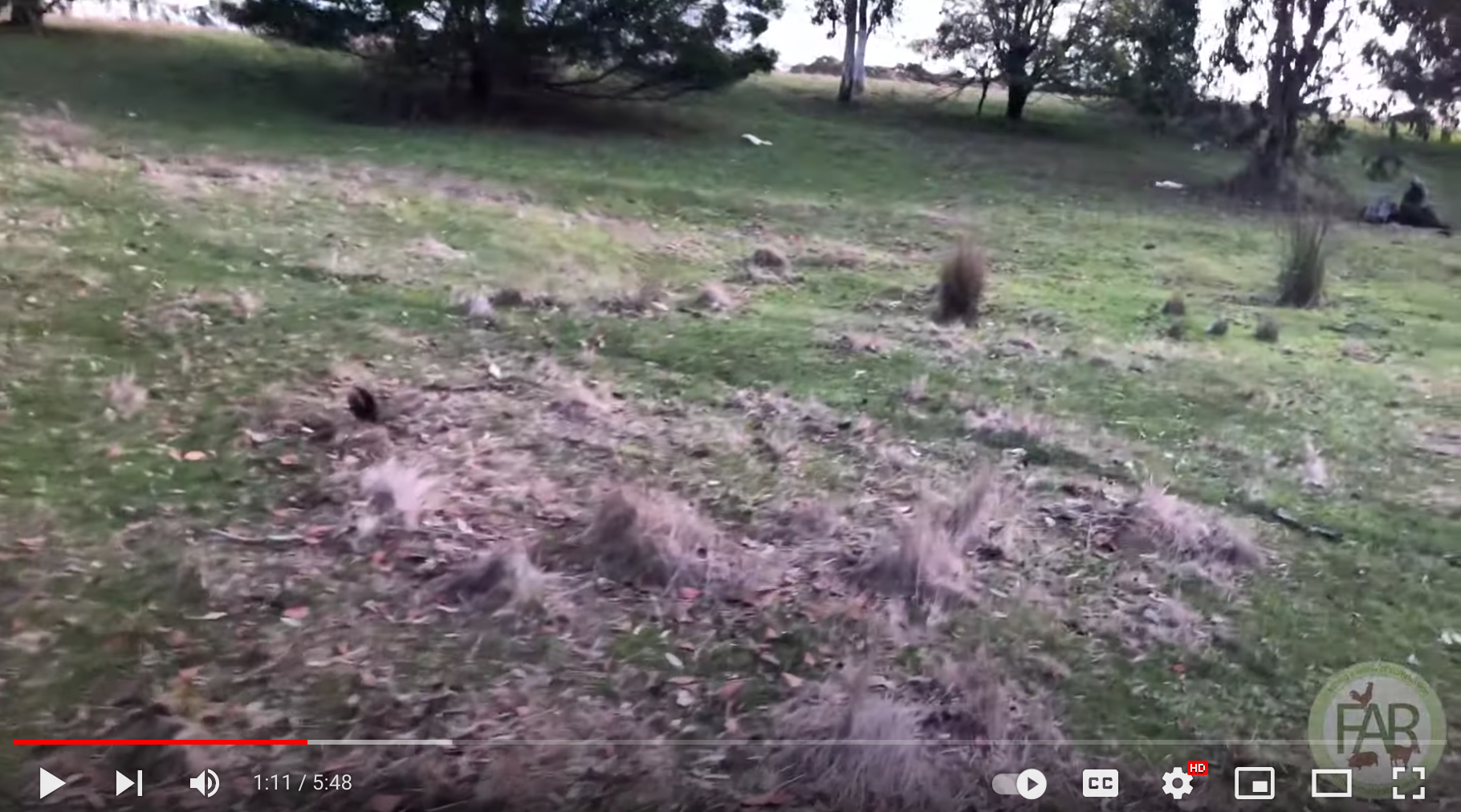Why we rescue sheep at Farm Animal Rescue
Having rescued sheep for so many years, we have learned a lot about them. Sheep are gentle animals and have their own unique abilities and intelligence. They are incredibly social and can recognise their friends and even familiar people. This social connection is super important for their happiness.
Sheep are good at learning things. We notice this particularly when sheep remain frightened of us for some time after rescue, having learnt that humans are associated with pain and rough handling.
Sheep can also solve basic problems, like finding food and water. Plus, they have a great memory, which helps them remember their buddies and where things are.
These gentle creatures can also feel things like fear, stress, and happiness, just like we do. So, even though they might not be considered the brainiest of animals, they're still very special, and it's important to treat them kindly and look out for their well-being.
Where do the rescued sheep come from?
Farm Animal Rescue sanctuary sheep have been rescued from the lamb meat and wool industries.
Due to demand for wool, Merino sheep have been genetically bred to grow as much fleece as possible, and designed to have wrinkled skin so as there is more surface area for the wool to grow. And whilst sheep used to naturally shed their winter coat, sheep genetically bred by the wool industry retain their wool. As such they are no longer able to live without being shorn, and if their coat is left too long it becomes dirty and full of bacteria.
In Australia, flies are attracted to the wrinkled skin and may lay eggs there, which can lead to a painful and possibly fatal condition called flystrike.
We rescue these gentle animals as we know that sheep have the capacity to suffer as much as our own cats and dogs, and that right now in these industries, their interests come second to profits.
In addition, laws that protect our very own companion animals do not apply to them and they routinely have parts of their body cut off without pain relief. Here are some practices common in the industry that we are working to eliminate so that the world is a better place for sheep and lambs.

Tail Docking of Sheep
Lambs are born with a long tail, but many bred into animal agriculture have their tail cut off with a blade or sharp knife whilst being restrained in a device. This is thought to reduce the risk of flystrike.
Cutting off an animal's tail is major surgery, as it requires cutting through bone and muscle at the base of the tail. Such surgery causes much pain.
Currently, however, there is no mandatory requirement for pain relief in Australia if the lamb is under six months old, so this is an excruciating procedure for millions of lambs each year.
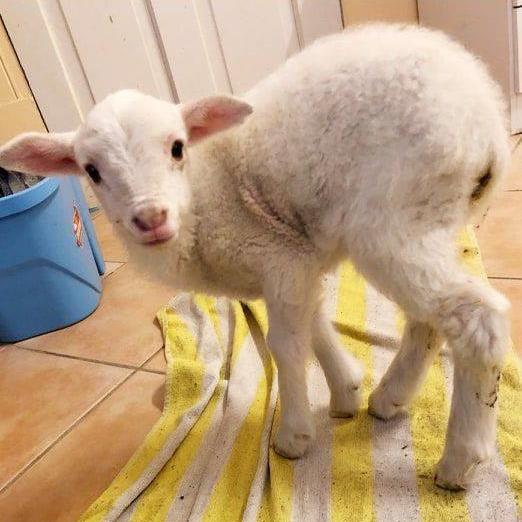
Mulesing of Sheep
Mulesing is a process where young lambs have the skin around their rump and tail cut off with a pair of shears in order to leave a smooth scar that will not attract the flies.
Mulesing is performed to minimise flystrike but leaves the lamb with a large bleeding and painful wound which can take weeks to heal.
Although mulesing has been banned in New Zealand, and animal advocates in Victoria spoke out to secure pain relief for the sheep during the process, it is still commonplace in other states of Australia without pain relief.
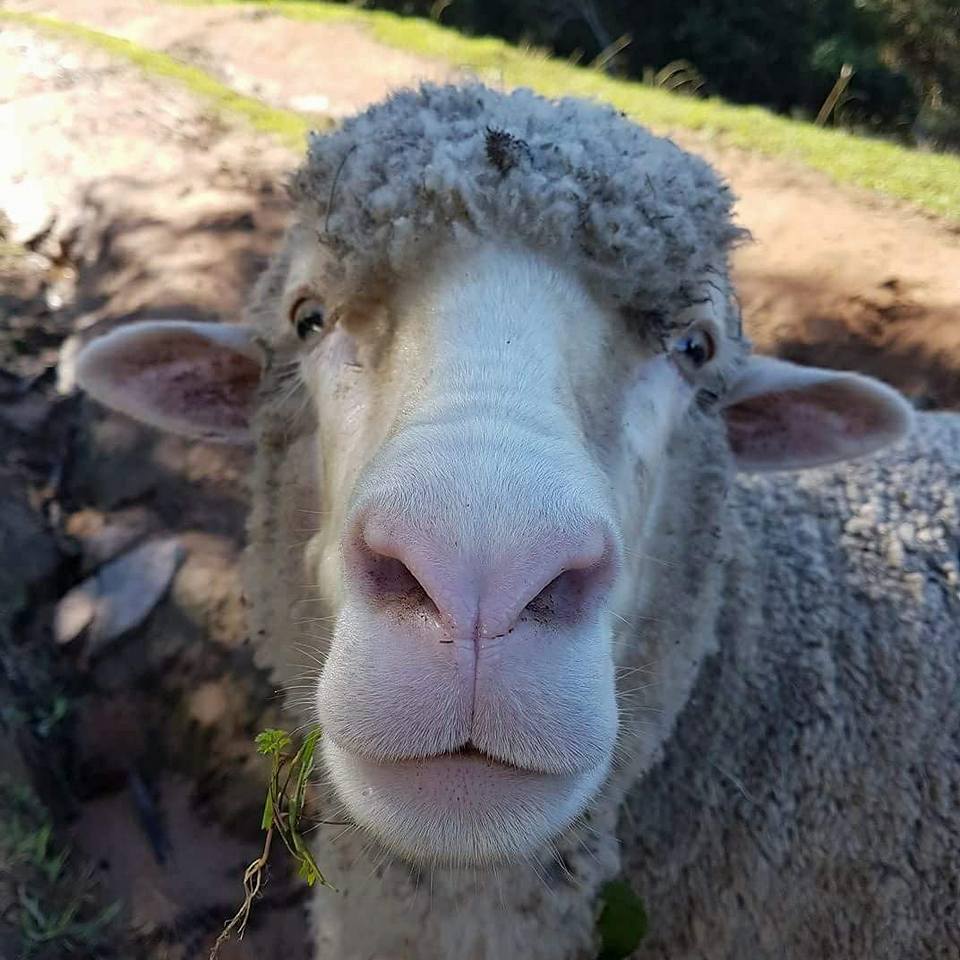
Castration of sheep
Male lambs also have to endure surgical castration where the bottom of their scrotum is cut out without pain relief.
Sheep Shearing
Shearing causes stress for sheep who are naturally fearful of human handling. In addition, it is not uncommon for sheep to get injured whilst being sheared, and common industry practice to stitch up wounds without pain relief.
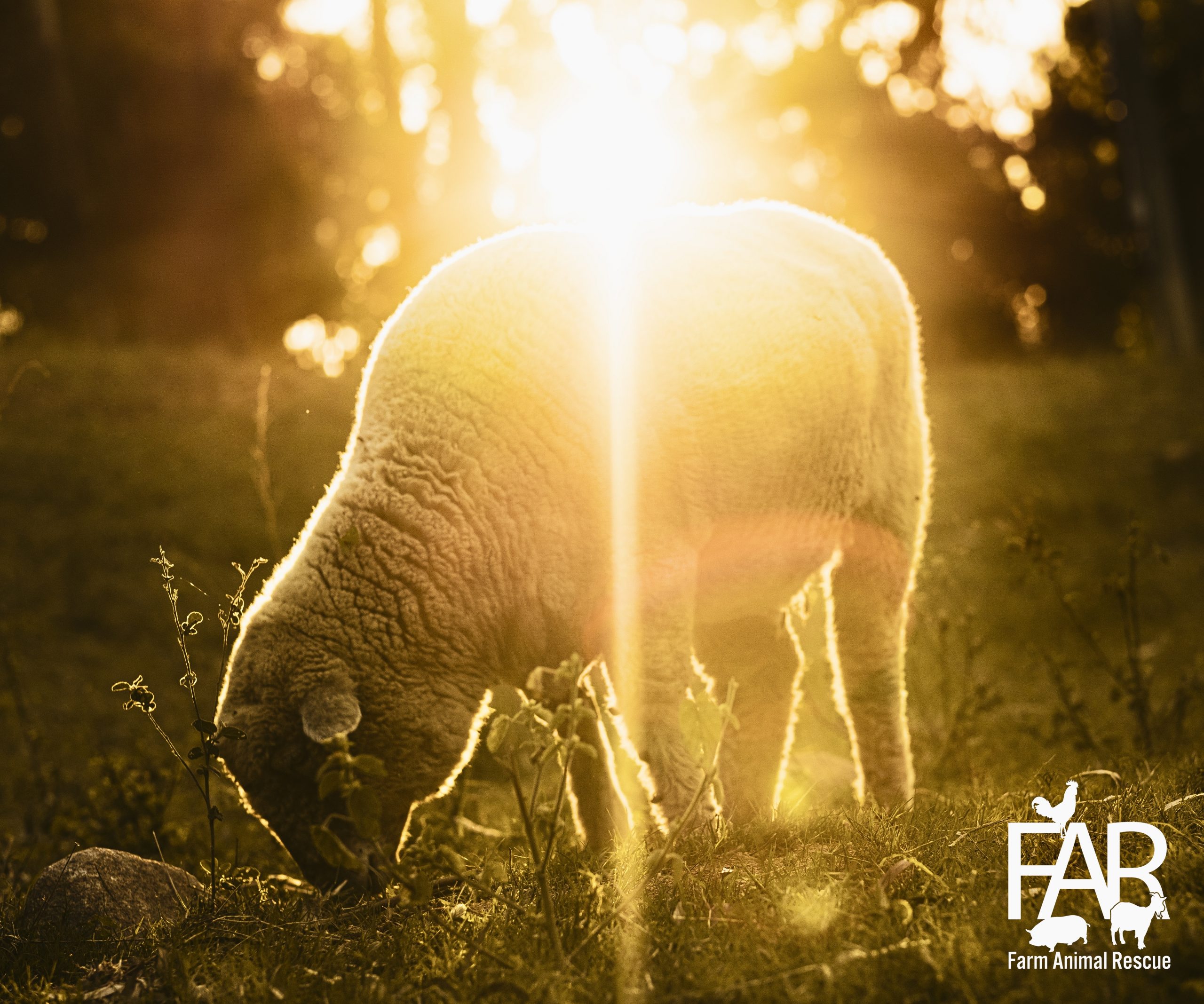
Winter Lambing
In winter 2018 the FAR Investigations team went to Victoria and discovered firsthand the death toll caused by lambing in winter. The industry suggests that up to 15 million lambs could die each year.
Watch the video link below of the footage from this rescue mission (note the video which contains images of lambs that have died in their paddock and may be distressing to some viewers). The video also shows lambs we rescued from the investigation who are now living at the sanctuary.
Lamb slaughter
Every sheep we rescue values his or her life and does not want to die just as the millions of sheep destined for consumption each year do. They want to live with all their hearts.
When they find themselves at the slaughterhouse, they are filled with fear as they witness their friends being led to their fate. They fight desperately against the workers, highlighting the undeniable fact that there's nothing humane about taking the life of an animal that longs to live.
Slowly but surely, people are starting to pay attention and question the story behind the animals they consume.
We exist to provide an opportunity for individuals to meet these same animals doing what they love most—living freely and happily within our sanctuary. It's a chance for people to connect with the reality of these sentient beings and reconsider the choices they make.
